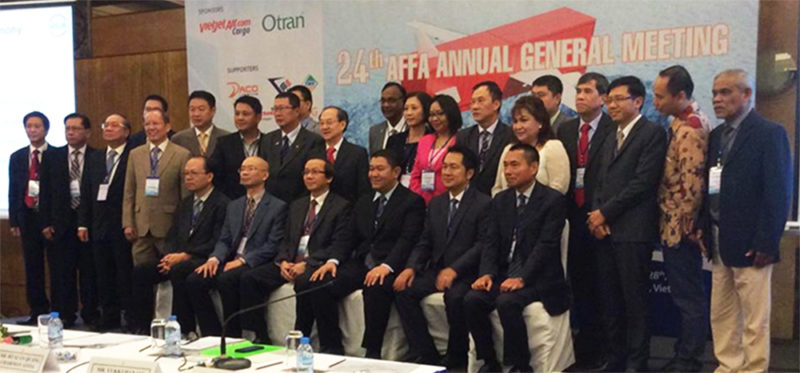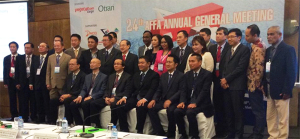

The Association of Southeast Asian Nations (ASEAN) Federation of Forwarders Association (AFFA) has “recognized the importance of addressing critical logistics activities” in the pursuit towards and beyond ASEAN Economic Community 2015.
In a joint statement after last month’s 24th ASEAN AFFA annual general meeting in Vietnam, the group’s representatives from the region’s 10 member-countries observed that despite changes and improvements in some areas of the programs outlined in the ASEAN Roadmap for Logistics Services Integration, “there remain gaps in many areas.”
The group recommended that the private and public sectors focus on four pillars, namely, institutional connectivity, physical connectivity, people-to-people connectivity, and safety and security.
Under institutional connectivity, AFFA said more “facilitative regulatory measures are required to improve free flow of goods in the region.” Among critical measures that need improvement are acceleration of implementation of the ASEAN Framework Agreement on the Facilitation of Goods in Transit especially involving unsigned protocols; and removal of constraints on movements of goods across borders such as bond deposits and Form D (certificate of origin), and issuance of truck permits and exemptions to physical customs inspection for perishable goods and issuance of transit license by adapting good practices of cross-border processes introduced in successful jurisdictions.
The AFFA also encouraged 24/7 customs operations in select border points in several ASEAN economies; simplifying international trade documentation such as that for the certificate of origin and sanitary and phytosanitary certificates; reviewing the need for selected non-tariff barriers (NTBs) and exploring the removal of unnecessary NTBs, including foreign ownership in business within ASEAN jurisdiction; standardizing the protocol among member-countries for establishing the ASEAN Single Window in terms of infrastructure, legalities, and data system; allowing drop-shipments in transit countries by international land transportation providers without infringing on national cabotage rules; and encouraging and facilitating the use of AFFA member-countries as transit countries for neighboring states.
As for physical connectivity, AFFA members agreed on the need to upgrade infrastructure and facilities at gateway ports, airports, and border checkpoints; improve cold-chain infrastructure and cargo handling by labor at borders; and enable stable, fast Internet connectivity through improved infrastructure and services.
As for people-to-people connectivity, AFFA stressed it is important to increase business connectivity and partnership among agents; increase participation of the business sector in forming negotiation strategies for international transport and logistics; support the establishment of an ASEAN logistics curriculum by ASEAN AFFA to cover the interest of logistics service providers and users; and direct the mutual recognition arrangements on national skills qualification system towards a standardized process of capacity building among AFFA member-countries.
For security and safety, AFFA also identified the need to have clearer regulations on implementing air cargo security; support service providers in giving training on and reducing the costs of implementing safety and security measures and physical installations to global and national standards; and improve support from governments in creating awareness among supply chain stakeholders of the need to comply with international safety and security regulations.
The meeting likewise noted there are “massive tasks to be completed to realize the ASEAN Economic Community within 2015 and beyond but AFFA shall continue to encourage the public and private sectors to assist in facilitating issues that are raised in the joint statement.”
The declaration was signed for the Philippines by Erich Lingad, an official of the Federation of Forwarders Associations in the Philippines. – Roumina Pablo




